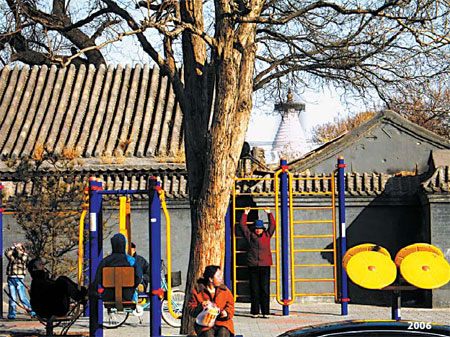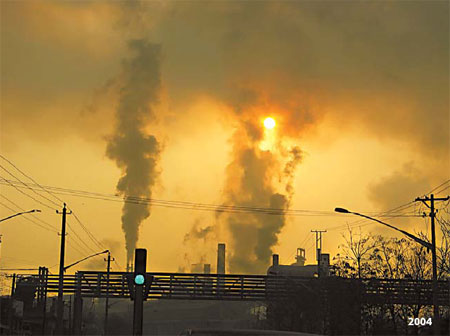|
|
 |
|
30th Anniversary Celebrations
Economic Development
New Rural Reform Efforts
Political System Reform
Changing Lifestyle
In Foreigners' Eyes
Commentary
Enterprise Stories
Newsmakers
Photo Gallery
Video and Audio
Wang Wenlan Gallery
Slideshow
Key Meetings
Key Reform Theories
Development Blueprint
Li Xing:
Teachers like Li need our support Alexis Hooi:
Going green in tough times Hong Liang:
Bold plan best option for economy Setting a clean example
By You Nuo (China Daily)
Updated: 2008-08-04 10:39   How will Beijing Olympics benefit China? How will the Chinese see the coming sports event other than as a world athletic contest? Different people have different assumptions. Not a small number of people, including seemingly well-informed ones, tend to see it as a coming-out party for China to celebrate its gain (or regain) of a global glory; a vanity event for the Chinese officials. But in the eyes of ordinary residents in Beijing, like those doing morning exercises with the Hutong recreational equipment captured in 2006 by photographer Wang Wenlan's candid camera, the Olympics may not have so many seemingly profound implications. The background is a white tower built during one of China's great learning periods in the past - to embrace Buddhism brought to the country from the Silk Road courtesy of Indian teachers and their local students. Like the architecture that fits almost seamlessly in Beijing's skyline, the religion was, some 500 years after it was first imported, assimilated and recreated as Zen, a Chinese product later re-exported worldwide. To say that the descendents of such a historical experience would still need a 21st century coming-out party is an exaggeration. China has never been a small kingdom. The Chinese have done enough big things in the past and their ordinary people don't often remember them all. Their understanding of the Olympics can be quite down-to-earth. As many Beijing residents say, the most welcome change is the improvement in the urban environment. So what? Is Beijing a clean city? Many first-time visitors may have doubts. But for the local residents, the change of scene shown in Wang's 2004 photo, taken in the neighborhood of Beijing's Capital Iron and Steel Corp (Capital Iron & Steel), is a major success. By the way, the smoke stacks of the steel industry were once also considered evidence of the country's rise in world power - another approximate coming-out party. Now, to make way for the Olympics, the Capital Iron & Steel (or much of its iron and steel operations) has been moved to a distant new location and many of its old technologies phased out. Most, if not all, signs of major industrial pollution have been wiped out in the city, with the exception of vehicles. The relatively easy pace of life in a neighborhood now free of pollution is enough of an example for urban residents in a rapidly developing country such as China. Especially in contrast to tens of millions of other residents in cities that still have smokestacks belching out black, gray or yellow fumes, just like those living not far from the Capital Iron & Steel four years ago. If Olympics presents the occasion for Beijing to liberate itself from much of its past pollution, then citizens in other cities will still have to make their own efforts toward a better environment. But having seen Beijing's example, they are giving criticism and protesting almost on a daily basis, especially where steel mills and chemical plants cluster. Local governments are pressed to reduce pollution in order to maintain the economy and attract new investors (and visitors). The Beijing Olympics is only the start of a marathon for them to catch up with the citizens' new demands.   
 |
久久久无码人妻精品无码_6080YYY午夜理论片中无码_性无码专区_无码人妻品一区二区三区精99